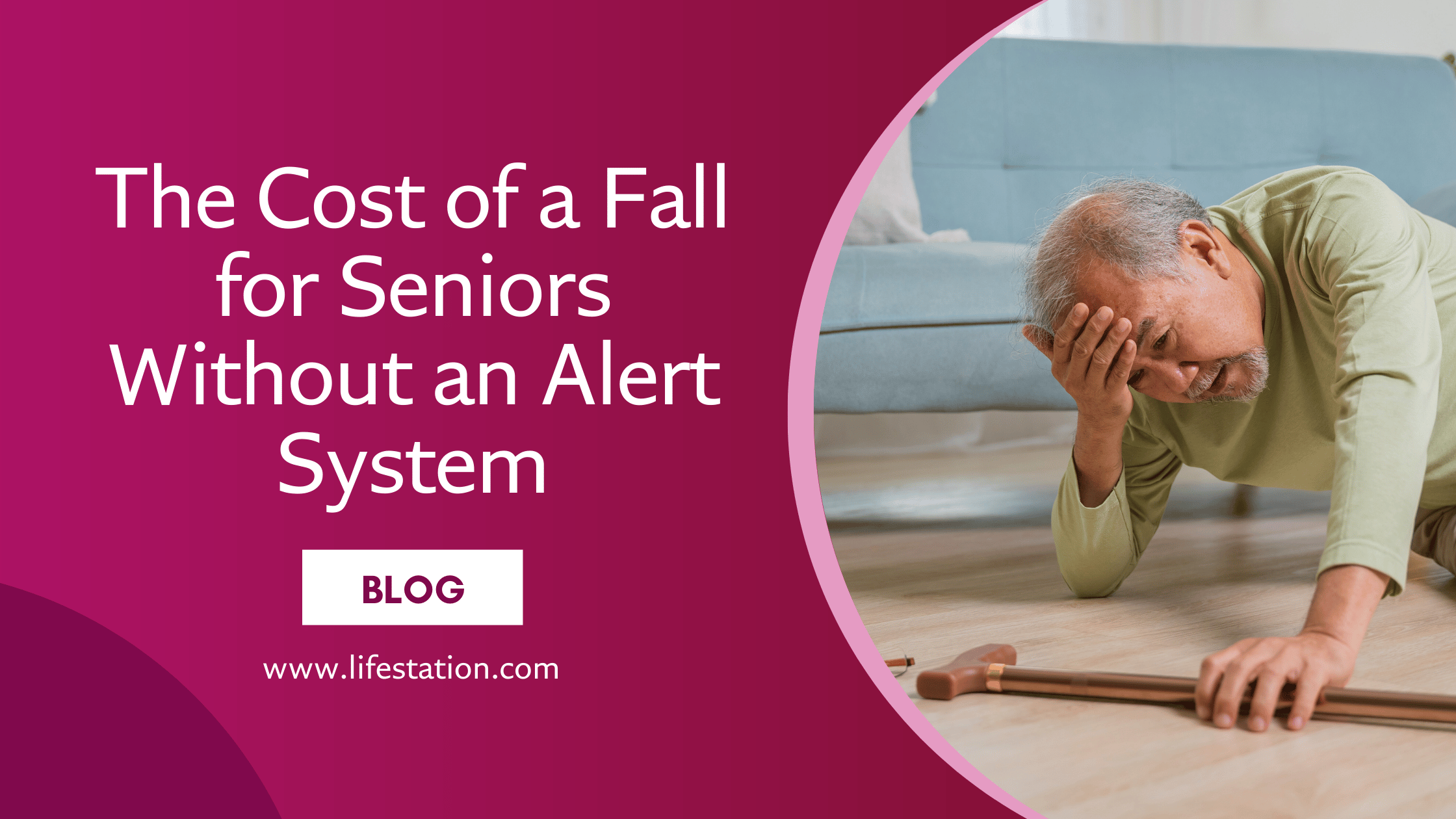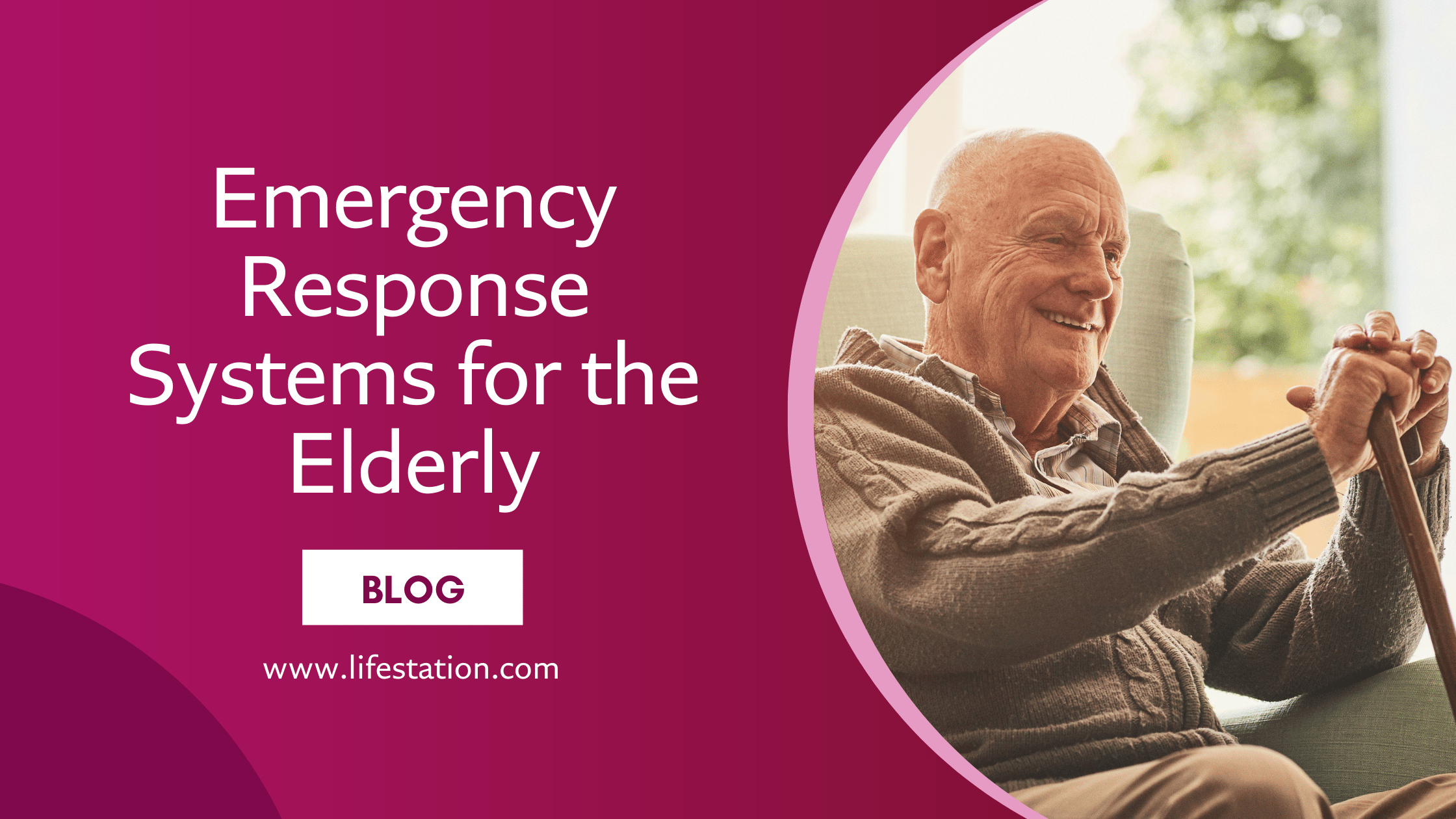Peace of Mind & Independence is One Call Away
(888) 493-1475 - Click to Call get a FREE MONTH of service.
Taking a few smart steps today with your emergency plan can protect your independence, keep you connected to loved ones, and bring peace of mind tomorrow.
Emergencies often happen without warning. For older adults living alone, planning ahead isn’t just smart — it’s necessary for safety, comfort, and peace of mind. A well-prepared home, an updated emergency contact list, and the right emergency supplies makes the difference between a stressful scramble and a calm, steady response.
Every living situation is different. Living in a busy city, a small town, or a rural area changes how quickly emergency workers reach you. Severe weather like winter storms, hurricanes, or wildfires can also cause different challenges. By understanding your needs and taking action today, you will protect your health, your home, and your life.
Building a strong emergency plan now can make living alone safer, easier, and more comfortable — and LifeStation’s medical alert systems are always here to assist.
Who Faces Which Types of Emergencies?
Every living situation brings its own risks. Knowing what might happen in your area is the first step toward staying prepared.
- Seniors living in coastal areas often face severe weather emergencies like hurricanes and flooding.
- Those in northern states prepare most for winter storms, power outages, and icy conditions that can disrupt transportation and heating.
- In rural communities, slower response times from emergency workers make it even more important to have a strong emergency plan and fast access to emergency supplies.
- Older adults with limited mobility must plan ahead for fast evacuation during fires or flash floods, where time is limited and shelter access can be challenging.
- Urban residents deal with different risks — like longer phone line outages during storms or traffic congestion slowing down first responders.
Building the right plan starts by thinking about your home, your town, and your everyday routines. Preparing now strengthens your ability to respond confidently when an emergency strikes. Read our blog on staying safe in a crisis.
Build a Complete Emergency Contact List
Having a strong emergency contact list means help is always within reach. Include family members, trusted friends, neighbors, doctors, and local first responders. Save these numbers in your cell phone and also post a printed contact list in an easy-to-find place inside your home.
Set up a simple communication plan: decide who you will call first, who will check on you, and how you will update others if phone lines are down. Keeping your support network tight and organized protects your independence during any emergency.
Create an Emergency Kit Tailored to Your Needs
A reliable emergency kit covers more than the basics. Pack a fully stocked first aid kit, several days’ worth of bottled water, non perishable snacks, extra prescription medications, and hand sanitizer.
Prepare backup chargers for mobile phones and your medical alert device, along with flashlights, batteries, and extra blankets. Including comfort items like a favorite book or crossword puzzles makes staying safe after a disaster a little easier.
Plan for Evacuation and Shelter Options
A clear evacuation plan saves time when every minute matters. Know where local shelter sites are located and check whether they accept people with limited mobility or special medical equipment needs.
Arrange transportation assistance ahead of time if driving isn’t possible. Designate a neighbor or family member to help you evacuate safely if needed. Keep routes simple and practice leaving the house efficiently to protect your ability to act quickly during an emergency.
Organize Important Medical and Legal Documents
Store copies of your medical records, medical history, insurance cards, bank account information, and key attorney documents together in a waterproof folder. Include a list of medical conditions, current medical devices, and important medical needs.
Quick access to important documents protects your health and finances if an emergency strikes. Update your folder once a year and keep it stored with your emergency supplies for easy grabbing.
Stay Informed During Unexpected Situations
Sign up for local emergency alerts on your cell phone to stay updated about severe weather, winter storms, or other urgent emergency situations. Keep a battery-operated radio ready in case of power outages.
Use modern technology like news apps and smart devices to stay connected even when phone service is disrupted. Stay flexible with your living situations by preparing backup shelter options with family, friends, or nearby centers. Staying alert and connected strengthens your well being no matter what unexpected situations arise.
An emergency plan is stronger with fast, reliable help built in — LifeStation’s medical alert systems offer immediate assistance at the press of a button, no matter where or when you need it.
Other Helpful Steps to Prepare for Emergencies
Small actions today strengthen your safety tomorrow. Alongside your emergency supplies and communication plan, consider these extra steps:
- Practice using medical devices like oxygen tanks, glucose monitors, or alert buttons during calm times — not during an emergency.
- Double-check your emergency contact list and support network twice a year to keep phone numbers and contacts current.
- Keep a lightweight go-bag with bottled water, snacks, basic medical equipment, and important documents near your front door.
- Talk with neighbors and local friends about creating a shared evacuation plan, especially if transportation or limited mobility could slow you down.
- Store extra prescription medications in easy-to-grab bags, and ask your doctor if certain medicines can be packed safely long-term.
- Keep power banks and portable chargers with your kit to keep medical devices, phones, and lights working during power outages.
- Stay aware of weather forecasts and local emergency alerts, especially during winter storms, hurricane season, or wildfire months.
Final Remarks
Preparing for emergencies is a strong, thoughtful choice. Every step you take now — building your emergency contact list, organizing your emergency supplies, planning an evacuation route — protects your life and gives peace of mind to the people you love.
When neighbors check in, or family members offer support, it’s part of a smart network you helped create. Setting yourself up with a clear plan, strong contacts, and reliable tools shows leadership, not dependence.
You shaped your life with resilience and independence. Staying ready is simply another way of showing the strength you’ve always had.
Request a brochure from LifeStation to see our full range of medical alert systems.
What if a medical emergency happens and my emergency contacts don’t answer?
In medical emergencies, every second counts. If your primary contacts are unavailable, a medical alert device like LifeStation connects you directly to trained professionals who coordinate with first responders. Having both personal contacts and backup support ensures you always have a path to fast help.
How detailed should my emergency paperwork be to guarantee appropriate care?
When it comes to receiving appropriate care, more information is always better. A brief medication list isn’t enough — your folder should include full medical records, a rundown of medical devices you use, a history of medical conditions, and emergency treatment preferences. Keeping this comprehensive list easy to grab will help emergency workers provide the right care immediately.
What special preparations help an older person manage during a shelter stay?
A shelter stay isn’t always smooth, especially for an older person managing medical needs or limited mobility. Bring personal comfort items, backups for essential medical equipment, and a note explaining any physical limitations. Telling staff early about your needs helps protect your independence and health throughout your stay.
If I already have a plan, how often should I update my comprehensive list and supplies?
Emergency needs change over time. It’s smart to update your comprehensive list of medications, emergency numbers, and supplies at least twice a year. Changes in medical conditions, new medications, or shifts in your support network all mean your plan should evolve to stay effective.
Get the Best in Medical Alert Services Now
Request Medical Alert Information
By clicking the Request Brochure button above, you are providing an electronic signature certifying that our company and our affiliates have your consent to contact you at the provided telephone number using an autodialer or prerecorded message in accordance with our Terms of Use. Please note that you are not required to purchase anything from the companies that may contact you. Healthcare providers and anyone interested in getting more information about working with LifeStation, please contact LifeStation business development. By entering an email address, you agree to receive emails periodically from LifeStation. You can unsubscribe from these emails at any time. LifeStation.com will never sell, trade, rent or give away your personal information without your permission. We value and respect your trust in us.

